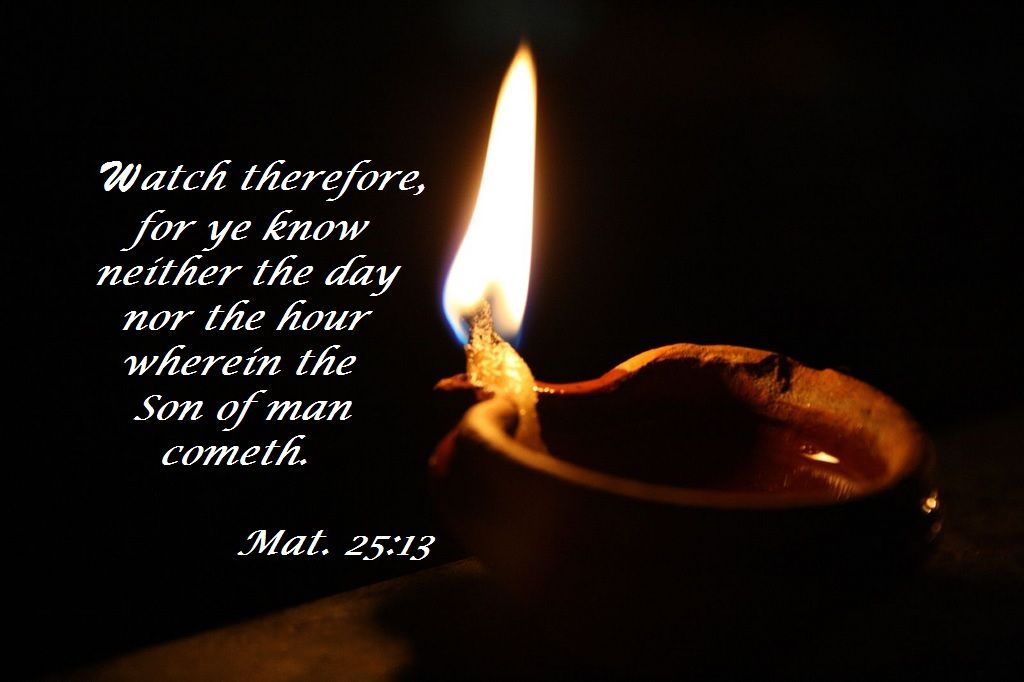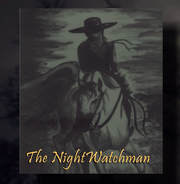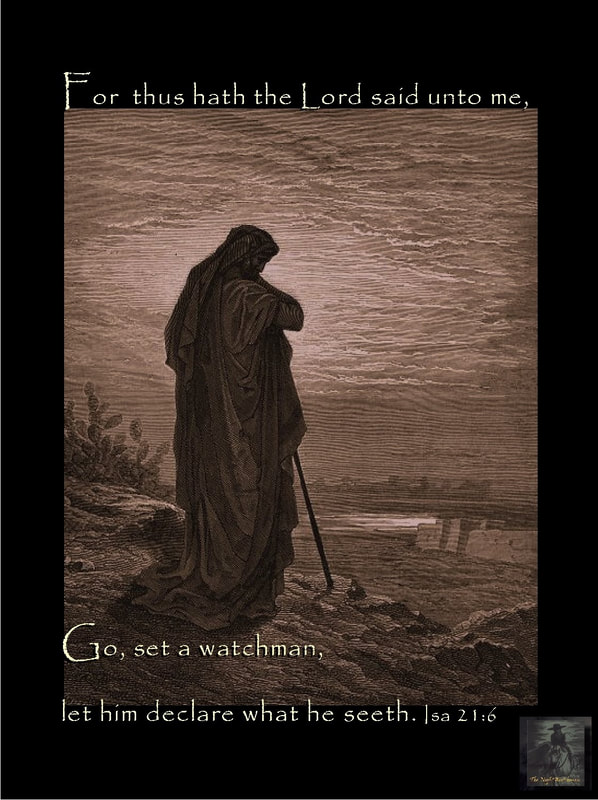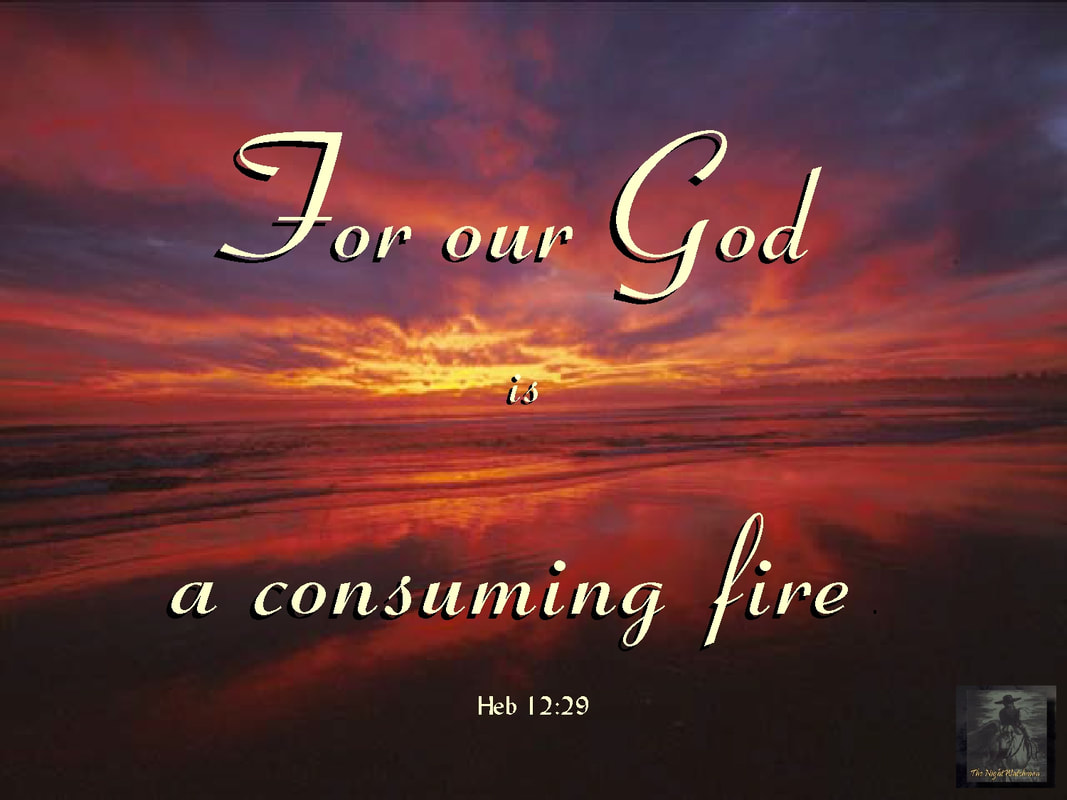|
Parable of the Ten Virgins Then shall the kingdom of heaven be likened unto ten virgins, which took their lamps, and went forth to meet the bridegroom. And five of them were wise, and five were foolish — Mat_25:1-2 The Tradition of a Jewish Wedding The ceremonies at a marriage in the East were very different from those we are accustomed to, and the more clearly we can picture one of these Eastern weddings, the better we shall understand this parable. There was no religious service, as with us; no priest or minister was present. The essential thing was that the bridegroom should lead his bride from her father's house to his own. Hence the old phrase, "to take a wife," was literally true in Eastern countries, and we know that to this day, among the Arabs, the bride is taken as if she were an enemy—captured after some show of violence, and removed as a prisoner to her husband's home. Among the Jews, the bridegroom, with his friends (Joh_3:23), went to the home of his bride in the late evening. It was dark, and lights were needed for the procession—such lights among the Greeks and Romans (as the boys who are reading Latin poetry know) were generally torches; but among the Jews were more commonly lamps. The bride was waiting for the bridegroom there, in a white dress, decked out in all her jewels; and John would recall many a village scene when he wrote that the wife of the Lamb was arrayed in fine linen, clean and white (Rev_19:8), and that the New Jerusalem came down from heaven prepared as a bride adorned for her husband (Rev_21:2). Then the bridegroom led his bride into the street, with her maiden friends bearing her company, amid music and a score of flashing lights. And as the procession made its way back to the bridegroom's home, through the crowds who had poured out to see the bridal party, a little group of maidens at this corner, and a few more who had been waiting in the court, joined the happy company, and went with it to share in the marriage feast. Five Were Not Prepared for a Delay This, then, was the scene that Jesus transfigured in this exquisite parable, and the ten virgins, who take the chief place in it, may either (as many have thought) have been attending the bride in her own home that evening, or they may have formed one of those little bands that waited for the return of the procession. Will the reader please observe that number ten ? It is a favourite number in the Bible. When Abraham's servant went on his great journey, he took ten of the camels of his master (Gen_24:10). When the kinsman of Ruth desired to deal with Boaz, he took ten men of the elders of the city (Rth_4:2). The dragon in Revelation had ten horns (Rev_12:3).There were ten lepers who were cleansed by Jesus (Luk_17:12). The commandments were ten, and the talents and pounds were ten, and here our Lord says there were ten virgins. Now we are not told that these ten were good and bad; but we are told that five were wise and five were foolish, and we recall another parable where we read of a wise and of a foolish builder (Mat_7:24-27). The strange thing is that the foolish as well as the wise, here, each had her lamp, and it was burning merrily. The sad thing is that the foolish were not prepared for a quite possible, and indeed quite common, delay. The night deepened, and still there was no bridegroom. The wisest of them nodded off into sleep. Then at midnight there rang the cry, "Behold the bridegroom!" and in a twinkling every eye was open. No lamp was out, but all were going out (read verse 8 in the Revised Version). The wick even of the wise was sputtering. But then the wise had little flasks of oil with them; it was the work of a moment to trim their lamps. But the foolish had no oil, and there was none to borrow, and when they hurried out to buy it at the merchant's—can you not hear the jesting of the crows? And while they went to buy, the bridegroom came; and they that were ready went in with him to the marriage, and the door was shut. Want of Forethought Is True Foolishness Now I trust that no one will spoil this matchless story by arguing what the lamp or what the oil must be. I do not think that Jesus built up His parables laboriously. It is better to keep to the broad lessons of a parable, and there are three here which anyone may grasp. The first is, want of forethought is true foolishness. Can you tell me why the one builder was a foolish man (Mat_7:26)? It was just because he never foresaw the storm. He built in May when the birds were singing, and the sand was firm enough for summer weather; but he forgot November and its gales, when nothing could stand but a house upon a rock. So here the foolish virgins had their lamps, and their lamps were burning merrily enough. But they forgot to reckon with a tardy bridegroom, and it was just that want of forethought that spoiled all. Now none of us is to be anxious for tomorrow. But we have a strange and difficult life to live, and we have a death to die and a God to meet, and it is high time to make provision for all that. Have you done it? You know perfectly what the provision is. "Evil is wrought by want of thought, as well as want of heart." Times When We Cannot Help Each Other And the second lesson of the story is this: in the great hours we cannot help each other. I have no doubt the ten were all good friends; they had done many a kindly turn one to another. But now, that friendship was of no avail; there was no oil to borrow or to spare. It was not because the wise disdained the foolish, or were eager to see them ousted from the marriage, that they were deaf to this request for oil. They refused it for a far better reason—they needed every drop of oil they had. That means, that in every hour of judgment, there is no shining with a borrowed light. The help of others is priceless in many things, but in the hours of spiritual crisis it is vain. Another's faith can never aid us then, even though that other be a friend or father. It is our own faith and holiness and love that will determine matters when the Bridegroom comes. The Highest Wisdom Is to Be Watchful This is the great lesson of the parable, it is the highest wisdom to be watchful. The bridegroom came when no one looked for him, and Jesus will come in an hour we think not. The one day has been hidden, said Augustine, that every day might be regarded. How little did Pompeii think, in the bright morning, of the desolation the evening was to bring! With what awful suddenness in 1666, did the great fire devastate London! And like a Bridegroom in the night, Jesus will come. God grant He find us vigilant. Watch! 'tis your Lord's command, And while we speak, He's near; Mark the first signal of His hand, And ready all appear. BE READY FOR THE BRIDEGROOM Three remarkable parables occupy this chapter and follow a marked sequence of thought. First, we are called upon to look to ourselves, and be sure that we are prepared to enter the wedding feast; that is, to enter into the holiest and closest union with our Lord. Many are called into that union of thought, and prayer and service, but, alas, how few there are who approve themselves as chosen for that inner intimacy! We must see to it that our hearts are pure with virginal purity, and that the light is ever burning in our hearts, through the continual inpouring of the oil of the Holy Spirit. How marvelous the power which, from the noisy night procession of an oriental wedding, could bring this exquisite parable! The short, warm Eastern night, the ten girls, the cry, the peace of the prepared, the anguish of the unready, the inside and outside of the door! O blessed Comforter, may we not fail thee, as thou wilt not fail those who in their weakness seek thy help. F.B. Meyer CHARACTERISTICS OF THE WISE AND FOOLISH God’s children are wise; the rest are foolish. (1) They see things as they truly are. (2) They do not rest in knowledge. (3) They live for eternity. (4) They are like God. The wise and foolish are alike in many things. (1) They enjoy the same ordinances. (2) They use the same speech. (3) They utter the same prayers. (4) They have the same outward behaviour. There is a difference. (1) They are not taught by the Holy Spirit. (2) They are not dwelt in by the Holy Spirit. (3) The conditions of the heart become clear-in times of crisis. Pretenders true state is revealed. THE ETERNAL FATE OF THE FOOLISH Every hour of the day and night there are souls going into eternity unprepared. Oh, what excitement it must be about the death-bed, crying out for a lamp, and for the oil, and for the light; throwing; hands out, throwing them up, throwing them around, until the nurse asks, “What do you want, water?” He says, shaking his head: “No.” “Bathing of the temples?” He shakes his head: “No.” What does he want? Oh, he cannot get his light burning. He must start; he is started; he comes up to the gate of heaven; he knocks; he cries: “Let me in!”
He is not admitted. He says: “I want to see the bridegroom.” The voices within say: “You can’t see the bridegroom; he is busy with the guests now.” Says the man: “I must come in; my children are in there. I must come in.” A voice within says: “You refused the grace that would have brought you where they are.” “But,” says the man, “I must come in; all my friends and kindred are in. Hark! now! hear the sound of their voices, and the bounding of their feet. Let me in.” And a voice from within says: “You are too late!” It says to one man: “You are twenty years too late;” to another, “you are over five years too late;” to another, “you are a month too late;” to another, “you are a minute too late; “ and the mob of destroyed ones outside the door take up the chorus, and cry: “Too late!” And the hot wind of the desert sighs: “Too late!” and the bell in the tower of eternal midnight tolls and tolls: “Too late! too late!” And the torches of the silly virgins begin to flicker and hiss in the storm, and one by one they go out, until in the suffocating darkness they cry: “Our lamps have gone out!” And they go wandering through eternity, ages after ages, feeling out for the light, for comfort, for peace, for hope, but finding none, and crying: “Our lamps have gone out!” and then, turning in another direction, and wandering on, age after age, age after age, feeling for hope, and comfort, and light, and Heaven, but finding none, and crying: “Our lamps have gone out!” (Dr. Talmage.) Comments are closed.
|
Welcome
In this page there will be devotions/poems music and inspirational material 
The Lord Will Pour Out His Spirit
And it shall come to pass afterward, that I will pour out my spirit upon all flesh; and your sons and your daughters shall prophesy, your old men shall dream dreams, your young men shall see visions:
And also upon the servants and upon the handmaids in those days will I pour out my spirit. And I will shew wonders in the heavens and in the earth, blood, and fire, and pillars of smoke. The sun shall be turned into darkness, and the moon into blood, before the great and the terrible day of the LORD come. And it shall come to pass, that whosoever shall call on the name of the LORD shall be delivered: for in mount Zion and in Jerusalem shall be deliverance, as the LORD hath said, and in the remnant whom the LORD shall call. Joel 2:28-32 But this is that which was spoken by the
prophet Joel; And it shall come to pass in the last days, saith God, I will pour out of my Spirit upon all flesh: and your sons and your daughters shall prophesy, and your young men shall see visions, and your old men shall dream dreams: And on my servants and on my handmaidens I will pour out in those days of my Spirit; and they shall prophesy: Act 2:16-18 Resources
Madame Guyon - A Short and Easy Method of Prayer / Christian Audio Book (1 / 2) https://youtu.be/eihZWpAk7y4?si=PQ-_J3Y6i8u-N2Ac Union With God By Jeanne Guyon Chapter 1 Of 7 https://youtu.be/d5AfKS2dFLg?si=VtWAeEurkAddTDpL The Practice of the Presence of God - audiobook Brother LAWRENCE (1614 - 1691)- https://youtu.be/rRAs_BK1NR8?si=hGAL4C829aH7 DKMn Gander Story Poems
https://www.gander poems.org/ Archives
July 2024
|
Proudly powered by Weebly






